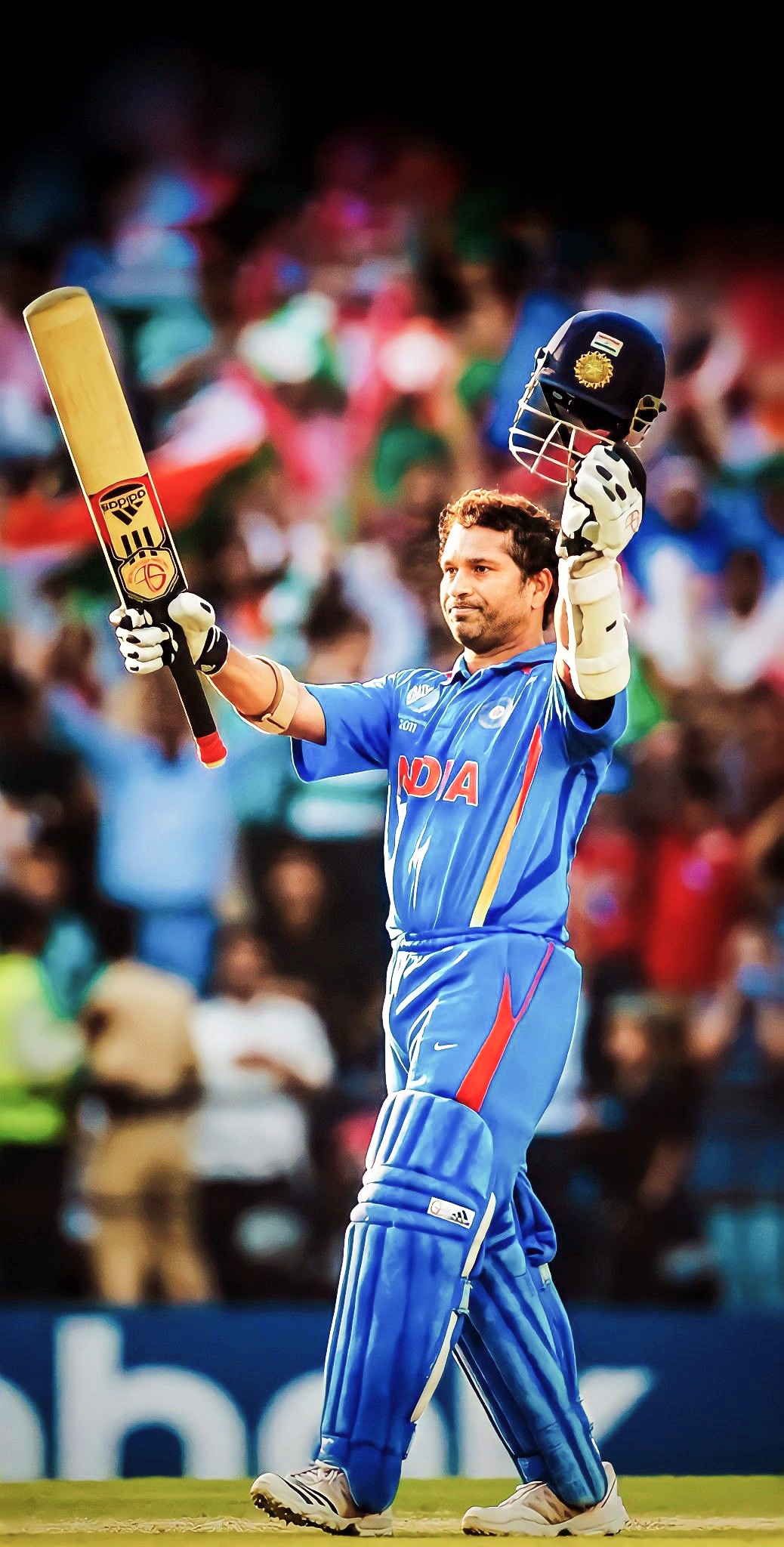Sachin Tendulkar
Sachin Tendulkar, full name Sachin Ramesh Tendulkar, is an Indian professional cricket player who was born on April 24, 1973, in Bombay (Mumbai), India. He is regarded by many as one of the greatest batters of all time. In international play, he scored 100 hundreds (100 runs in a single innings) in 2012, becoming the first cricketer to do so.
When Tendulkar was 11 years old, he received his first bat. In a school game at the age of 14, he utilized it to score 329 points out of a 664-point world record stand. At age 16 years 205 days, he became India’s youngest Test (international) cricketer, making his debut against Pakistan in Karachi in November 1989.
Despite India’s defeat in the semifinals of the 1996 World Cup, Sachin Tendulkar emerged as the tournament’s leading run-scorer, amassing an impressive 523 runs. In recognition of his outstanding performance in the 1997-98 season, he was honored with the Rajiv Gandhi Khel Ratna Award, the highest accolade bestowed upon an Indian athlete.
Moving forward to the 1999 World Cup, India faced disappointment as they failed to advance beyond the round of six, losing to Australia. Additionally, they encountered tough defeats against both Australia and South Africa in series later that year.
However, in the 2003 World Cup, Tendulkar played a crucial role in guiding the team to the finals. Despite India’s loss to Australia once again, Tendulkar showcased remarkable consistency with an average of 60.2 and was rightfully named the “Man of the Tournament.”
Sachin Tendulkar created history in December 2005 by scoring his record-breaking 35th century in Test cricket against Sri Lanka. This remarkable achievement came in his 125th Test match, surpassing the prolific Indian run-scorer Sunil Gavaskar.
In June 2007, Tendulkar reached another significant milestone by becoming the first player to amass 15,000 runs in One-Day Internationals (ODIs). Later, in November 2011, he became the first batsman to achieve 15,000 runs in Test cricket. Just a month after that, he made history once again by recording a “double century” in an ODI match against South Africa, becoming the first player to score 200 runs in a single innings of ODI cricket.
His outstanding performances earned him the prestigious title of the 2010 International Cricket Council (ICC) Cricketer of the Year. Notably, in March 2012, Tendulkar scored his 100th international century, which included both Test (51 centuries) and ODI (49 centuries) matches.
Tendulkar bid farewell to One-Day International cricket later in 2012 and retired from Test cricket in 2013, concluding his illustrious career with records for the most career international runs (34,357) and Test runs (15,921).
Throughout his exceptional career, Tendulkar was consistently ranked among the finest batsmen in the game. His unwavering dedication to scoring runs and his precision in strokeplay, both on the front and back foot, drew comparisons to Australia’s cricketing legend, Don Bradman.
In 2012, Tendulkar became a member of the Rajya Sabha, the upper chamber of the Indian parliament, making him the first active athlete to hold such a position. His term in the Rajya Sabha ended in 2018. Additionally, in 2014, he received India’s highest civilian honor, the Bharat Ratna, becoming the first sportsman to be bestowed with this esteemed recognition.
In recognition of his outstanding contributions to cricket, Tendulkar was inducted into the International Cricket Council Hall of Fame in 2019. His legacy as a cricketing icon and his impact on the sport will forever be remembered and cherished.

